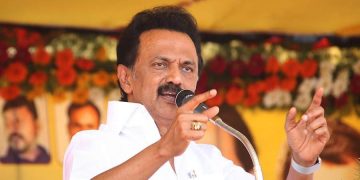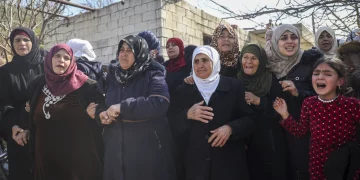Berlin: Nine people from central Asia were arrested in Germany and the Netherlands Thursday in connection with alleged plans to carry out attacks in Germany in line with the Islamic State group’s ideology, authorities said.
Seven men arrested in Germany are accused of founding a “domestic terrorist group” and of supporting IS, German federal prosecutors said.
All had known each other for a long time, had radical Islamic views and came to Germany more or less simultaneously from Ukraine shortly after Russia launched its full-scale invasion last year, they added.
A year ago, the suspects allegedly formed a group that aimed to carry out attacks in Germany. According to prosecutors, the group was in contact with an IS offshoot, Islamic State Khorasan Province.
Its members had checked out possible targets in Germany and attempted to procure weapons, but “there was no concrete plan for an attack at the time of today’s arrest,” prosecutors said in a statement.
All but one of the men arrested in Germany had been collecting money for IS since April 2022 and transferring it to the group, they added.
In the Netherlands, the public prosecution service said that a 29-year-old Tajik man and his 31-year-old Kyrgyz wife, who had been living in the country since last year, were arrested on suspicion of “committing preparatory acts for terrorism offenses.” The man is also suspected of membership in IS.
Police suspect that the man “was given the order to plot a terrorist attack,” the prosecution service said in a statement.
It said the plans were serious enough for prosecutors to intervene, although they were “not yet concrete.”
German prosecutors said the man arrested in the Netherlands belonged to the group formed by the other suspects.
The arrests in Germany were made in various locations in North Rhine-Westphalia state, which borders the Netherlands.
German prosecutors identified the men arrested there as Turkmen citizen Ata A., Kyrgyz national Abrorjon K, and Tajik citizens Mukhammadshujo A, Nuriddin K, Shamshud N, Said S and Raboni Z.
Their full names weren’t released in line with German privacy rules.
AP





































